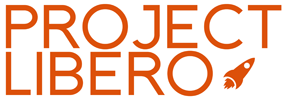There’s a story from the early days of the space race in the 1960s. When NASA started recruiting they were unsure of what conditions the astronauts would face. To that end the applicants were put through a battery of medical tests to ensure peak fitness. It was a pretty tough and debilitating week and many of the applicants quit rather than continue such invasive examinations. Whilst the majority of the tests were physical there were also some psychological ones.
The story goes that a pilot was offered a blank piece of paper. He looked at it, mystified. The psychiatrist waited patiently for an answer. Eventually the paper was handed back with a smile – “you almost got me there Doc, but it was upside down wasn’t it?” – the psychiatrist scribbles some notes down furiously and looks up to see the pilot laughing at him “Gotcha”*
Bear in mind that most of the intake had combat experience or were test pilots so they were used to these psychiatric interviews. The subjects knew that you didn’t say too little, after all, they needed to show flexibility of thought but on the other hand you didn’t say too much. You didn’t want to start discussing the “endless white void” or the like if you wanted to maintain flight status. A blank page could be a recipe for disaster.
I was musing on that story this morning. I’m embarking on a piece of film work for a new client. The whole thing is a blank piece of paper. There are no restrictions beyond it being a film. Everything is up for grabs, no decisions taken on how it will be, look, sound or feel. For some of it we will explore separately, for other parts it will be a collaboration. I’m so excited to have such a blank canvas that I bought a new notebook, (one with little rectangles for movie story boards) so that it exists discretely from all my other projects.
In the mean time I’m delivering training for a heavy engineering company. A place full of rules and processes. There is a clear structure and lots of restrictions on the way that they operate. Interestingly the senior people there spend a lot of time avoiding the processes they instituted, preferring to let those rules apply to others. This has understandably led to some resentment and a major chunk of time on the course goes in to clearing the air. Picture the scene then, when at the beginning of day 2 I ask my delegates to redesign new reports for the bosses and also to create an aide-memoire for their own role. It takes a huge leap of faith for them to start writing on a blank page but once they realise that there is no wrong answer they have been bubbling with ideas.
We spend so much time benchmarking and evaluating in organisations these days. Last week there were blogs galore on “best practice” with case studies from the big CIPD conference. We are comfortable building on the old process, borrowing from others, just adding a few percent to last years budget and playing safe in our thought.
My challenge to you? What would you change if I gave you a blank sheet of paper? What would you see on that empty page?
*The pilot concerned was Pete Conrad and playing the trick can’t have done him any harm as he went on to command the second moon lander.

So I have just sat down with my “blank page” and started a mind map. Your blog and one by Alison Chisnell, has prompted some thoughts around where I can add value. Somewhere there is a blend of psychology, lean and innovation.
Thanks, not sure we have blast off yet, but maybe theres a rocket!!!
Hi Ian
Thanks for stopping by. I also read Alison’s post & it was interesting because my experience of Tubelines is not quite as rosy as the one painted at CIPD. However I liked the approach they are taking.
I hope you get your rocket launched.